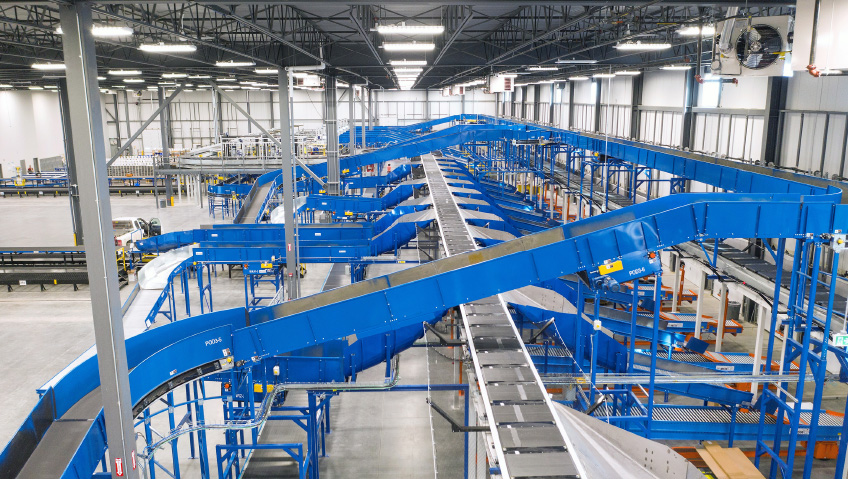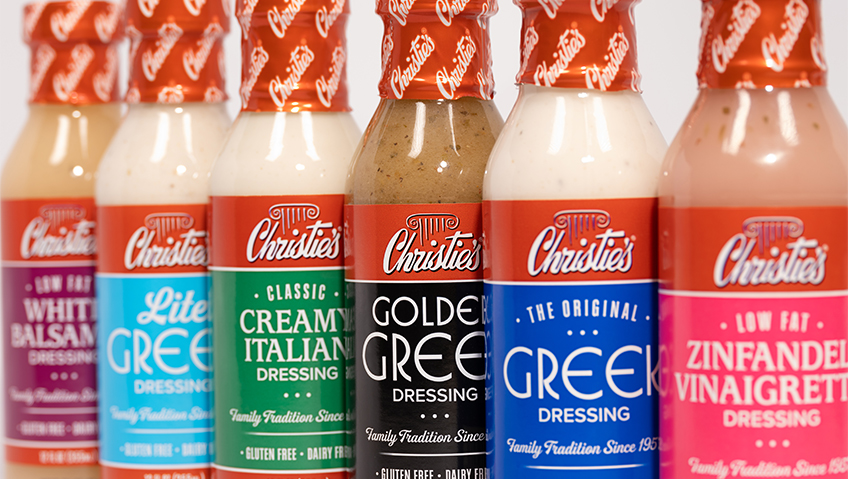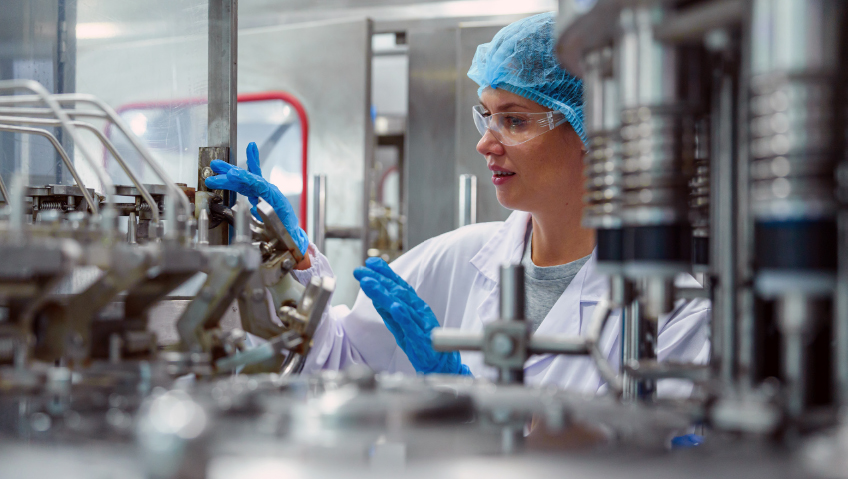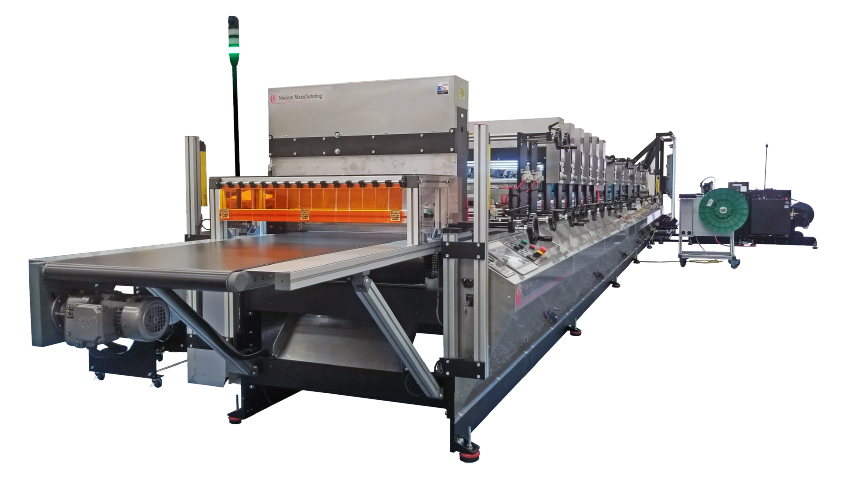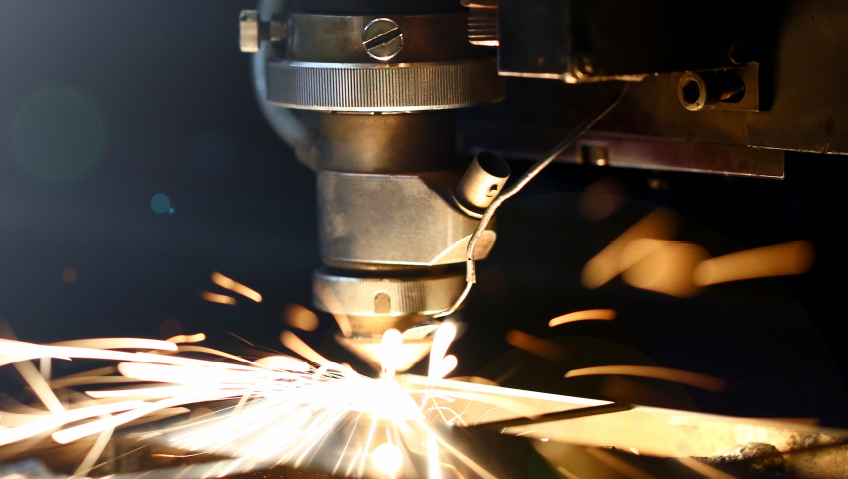Since 1988, Mainway Handling Systems has been creating dependable, advanced conveyor systems and automated warehouse solutions from its headquarters in Burlington, Ontario. Mainway provides systems design, installation, and integration services for multiple logistics industries including warehousing and distribution, logistics, freight, parcel, food, beverage, automotive and manufacturing. “Mainway and our dedicated team offer a complete service,” says Marketing Specialist Matthew Pereira. The company’s one-stop, turnkey approach has helped the business earn its place in the industry.
Mainway’s experienced and knowledgeable team simplify the installation process for customers, with “a local team that can design and install your warehouse operations,” Pereira explains. They design systems using proven and trusted technology to ensure that their solution can evolve along with the industry. As a result, Mainway solutions are “for now and for your future operations as well.”
The company’s tailored systems are strongly supported by its value-added follow-up services, including emergency repairs, service, support, preventative maintenance, parts supply, mechanical and electrical work, retrofits, relocation, installations, along with programmable logic controls (PLC), and panel builds.
To bolster their already impressive list of capabilities, Pereira notes, “In the last three years we have designed and started manufacturing our own line of 24V Motor Driven Roller (MDR) conveyor, with a lead time of 10 to 12 weeks.” These highly efficient conveyors feature run-on-demand zones and plug and play options, while supporting a module and ergonomic design. Mainway proudly manufactures their conveyor in Ontario, being able to carry the Ontario Made seal, delivering the superior quality that comes with a product made in-house.
“It’s important that it’s Ontario Made,” says Pereira. “We’re able to source our supplies within Ontario, driving an internal supply chain. It’s vital that we can control our lead times and our supply, being able to ensure product availability in the event of future supply chain disruptions.”
With their decades of honed experience behind them, they have been able to amass an impressive and diverse list of big-name clients which includes DHL, FedEx, Canpar, Toyota, BookDepot, Shoppers Drug Mart, Air Canada Cargo, Carquest, Loomis Express, Yusen Logistics, and many more. The ideal Mainway customer “is a warehouse, facility or distribution centre looking to automate or take advantage of their warehouse space, especially in today’s market,” Pereira summarizes. “Everything since COVID has moved toward more ecommerce, more online [purchasing] platforms, while the ongoing struggle of inflation adds to an organization’s rising costs.” The Mainway team can help these customers improve efficiency and productivity while saving on costs by employing integrated systems.
Indeed, Mainway can deliver its turnkey solutions virtually anywhere in Canada. “If you look to any warehouse and distribution, fulfillment, or logistics operation—we are able to support them from a Canada-wide standpoint. Our largest site right now is in Calgary; however, we have dozens of sites spanning this vast nation. Since introducing our conveyor, it’s been installed inside of Auto Shack, Delmar, Decathlon, Carquest, and FedEx. Large-scale adoption of our new conveyor has taken place over just the last three years, since the company began production, so this is only the beginning.”
The company’s targeted solution is recommended for a range of needs, including “any warehouse operation that can use automated conveyors that has a growing number of SKUs and products that they need to manage, because everything since COVID and the boom in ecommerce has really [become] individualized.”
For example, a retailer might receive an order for a number of random items, from eyeliner and toothbrushes to potato chips and pillowcases. “All that now needs to be both sorted and packed and then itemized. And all that needs to be done in a warehouse management system that goes and fulfills your order and puts all these different items in the box,” Pereira explains.
“There are so many factors that are going into a warehouse now,” he continues. “It’s not just simply emptying a truck, itemizing it, stocking it on a shelf, and then waiting for an order to come in and go out.” For instance, a big box store that has to deal with a massive shipment coming in could receive a variety of mixed pallets that may include cereal boxes, followed by a few unrelated food items in the back of the truck. “There’s more nuance and complexity with solving growing issues in that field. There are both the limitations of the warehouse and then the limitations—or what the expectations are—of the amount of product they need to store, send, ship, or pack.”
Dealing with complex needs requires a complex solution. Oftentimes this means thinking outside of the box to deliver a personalized design that fits specific challenges. Take Book Depot, for example. The bargain bookseller boasts one of the largest selections of any retailer in North America, creating a substantial challenge when it comes to distributing so many different units. Add to this that the distribution headquarters is housed in a historical building converted to meet modern needs. The Mainway team had to consider the unique aspects of the building and the specific distribution challenges when designing an effective automated system. “Mainway and our team put conveyors on the floor, on the ceiling, and running throughout the warehouse connecting the front and back of house.”
Designing a unique automated system like Book Depot’s requires a nimble, flexible approach. “We consider ourselves very agnostic when it comes to designing a system,” Pereira says. “We don’t want to be pigeon-holed to supplying only one partner’s equipment or tech because that would limit our ability to provide a full and complete system.”
Certainly, close partnerships with trusted players within the industry help Mainway deliver the best solutions. Key partners include Packsize, Intralox, Modula, FMH, CASI, Cognex, Ryson, and GreyOrange. Partnering with these companies is “crucial because it allows us the flexibility to offer a complete solution, not just the conveyor portion. It gives us the flexibility to focus on any kind of space. We can now design a complete system, from a 10,000-square-foot warehouse to a million-square-foot warehouse.”
The team works hard to stay a step ahead of industry trends and challenges in order to meet future market needs. Perhaps most notably is the increasing pressure to become carbon neutral and phase out the use of plastics. “A lot of companies are looking to shift to a cardboard-only option,” Pereira shares. “We believe there’s a huge future in that, with companies wanting to really go into sustainability-based approaches. I think it’s a win-win for everybody; when the time comes that companies have to adjust to a plastic-free environment, we’re here.” As always, the goal will be to support clients with a smooth, effective transition to a new automated system, “so no company has a hiccup or time-down.”
The Mainway team is eager to continue along the same successful path they are currently on. “We would like to maintain our course,” Pereira says. “The Canadian market is growing exponentially, especially in the last few years. So what we really want to focus on is offering a complete system and supplementing that with our services and maintenance.” Armed with a solid, proven track record, this goal should be an easy one for the company to achieve.

